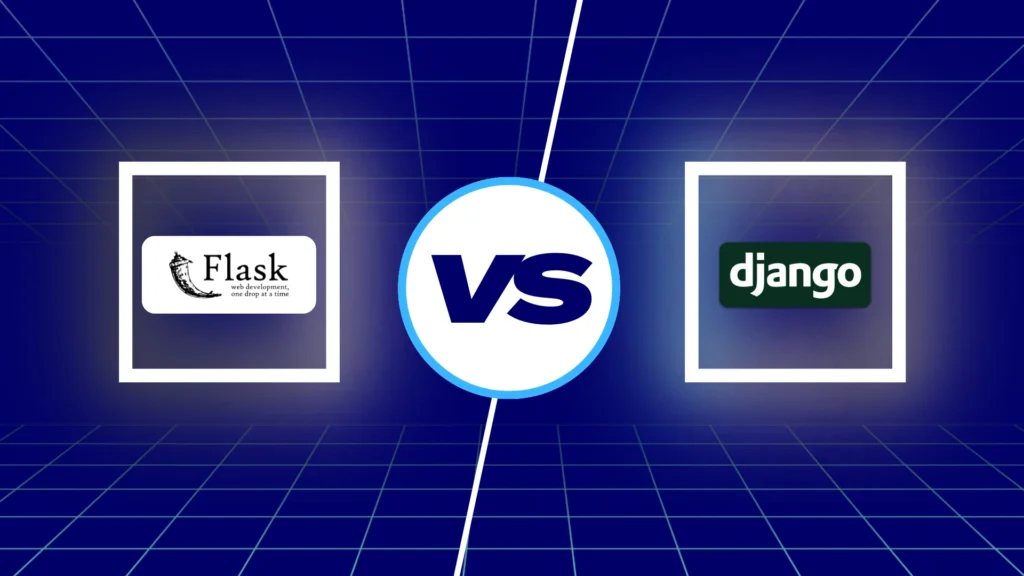Choosing the right web framework is a foundational decision that can shape the trajectory of your project—whether you’re launching a new MVP, building a SaaS product, or aiming for enterprise-scale development. When it comes to Python-based solutions, two powerful frameworks often compete for attention: Flask vs Django.
While both offer robust functionality and wide adoption, their architecture and use cases differ significantly. At PWH Services, we work with both technologies as part of our web development solutions, helping businesses select the right tools for growth and scalability.
In this blog, we’ll walk you through the core differences, unique strengths, and use-case recommendations to help you make a confident decision in 2025.
Flask Vs Django: The Core Difference
The main distinction between Flask and Django lies in their approach to development. Django is a full-stack, “batteries-included” framework—ready to use right out of the box. Flask, on the other hand, is a minimalist micro-framework, giving developers the flexibility to build their own stack.
Let’s break it down further.
Django: A Full-Stack Framework for Rapid Development
Introduced in 2005, Django has become one of the most popular open-source frameworks in Python. It’s designed to handle all aspects of web development—from URL routing to authentication, database handling, and even admin panels—right out of the gate.
Key Benefits of Django:
Out-of-the-box tools like admin dashboards, ORM, and authentication
Scalable architecture suitable for complex, enterprise-grade apps
Strong community support and extensive documentation
Built-in security against common threats like SQL injection and CSRF
Strict adherence to the DRY (Don’t Repeat Yourself) principle
Django’s rich features make it an ideal choice for projects that require fast development, structured codebases, and built-in scalability. If a challenge arises, chances are someone in the Django community has already solved it.
Flask: Lightweight Flexibility for Custom Applications
Flask entered the scene in 2010 and quickly became a favorite among developers who value flexibility. With a micro-framework approach, Flask offers just the essentials and lets you add what you need—making it perfect for learning, experimentation, or building APIs and small-scale apps.
Why Developers Choose Flask:
Minimalistic by design, allowing full control over the app structure
Ideal for microservices and modular applications
Easy to integrate with third-party tools and libraries
Excellent documentation and learning resources
Built-in debugger and development server
Flask is often the go-to framework for developers who want to understand the inner workings of an app and build every layer from scratch.
Flask Vs Django: Which One Fits Your Project?
Let’s look at how Flask vs Django perform based on your specific needs:
Project Size
Small projects: Flask is better suited due to its simplicity and flexibility.
Large-scale or scalable projects: Django offers the infrastructure and built-in tools necessary for long-term growth.
App Structure
If your application demands a highly customizable environment, Flask’s modular approach will serve you well. However, for standardized applications where speed and consistency matter, Django’s pre-configured structure can save considerable time.
Project Type
E-commerce & CMS platforms: Django is a superior choice with built-in modules and ORM support.
Media platforms or news portals: Django again has an edge due to its origin in content-heavy applications.
Static or simple web apps: Flask provides the agility and minimal overhead ideal for such use cases.
Flask Vs Django in Serverless & Cloud-Native Environments (2025)
As serverless architecture and cloud-native platforms continue to dominate in 2025, it’s essential to assess framework compatibility.
Flask shines in serverless environments like AWS Lambda due to its lightweight design and quick initialization.
Django, while more robust, may require additional configuration and tools like Zappa or Django-Chalice to perform effectively in serverless settings.
Both frameworks are deployable in the cloud, but Flask’s simplicity gives it a slight edge in serverless integrations.
Conclusion: Flask Vs Django—Who Wins in 2025?
There’s no universal winner in the Flask vs Django debate. Your choice should depend entirely on your project’s requirements, scalability goals, and development experience.
If you’re a startup looking for rapid development with a structured backbone, Django is your go-to. If you’re experimenting, building APIs, or want maximum flexibility with minimal configuration, Flask will serve you better.
At PWH Services, we specialize in both Django and Flask-based solutions. If you’re unsure about which framework aligns with your business goals, check out our web development services or reach out for a free consultation.


